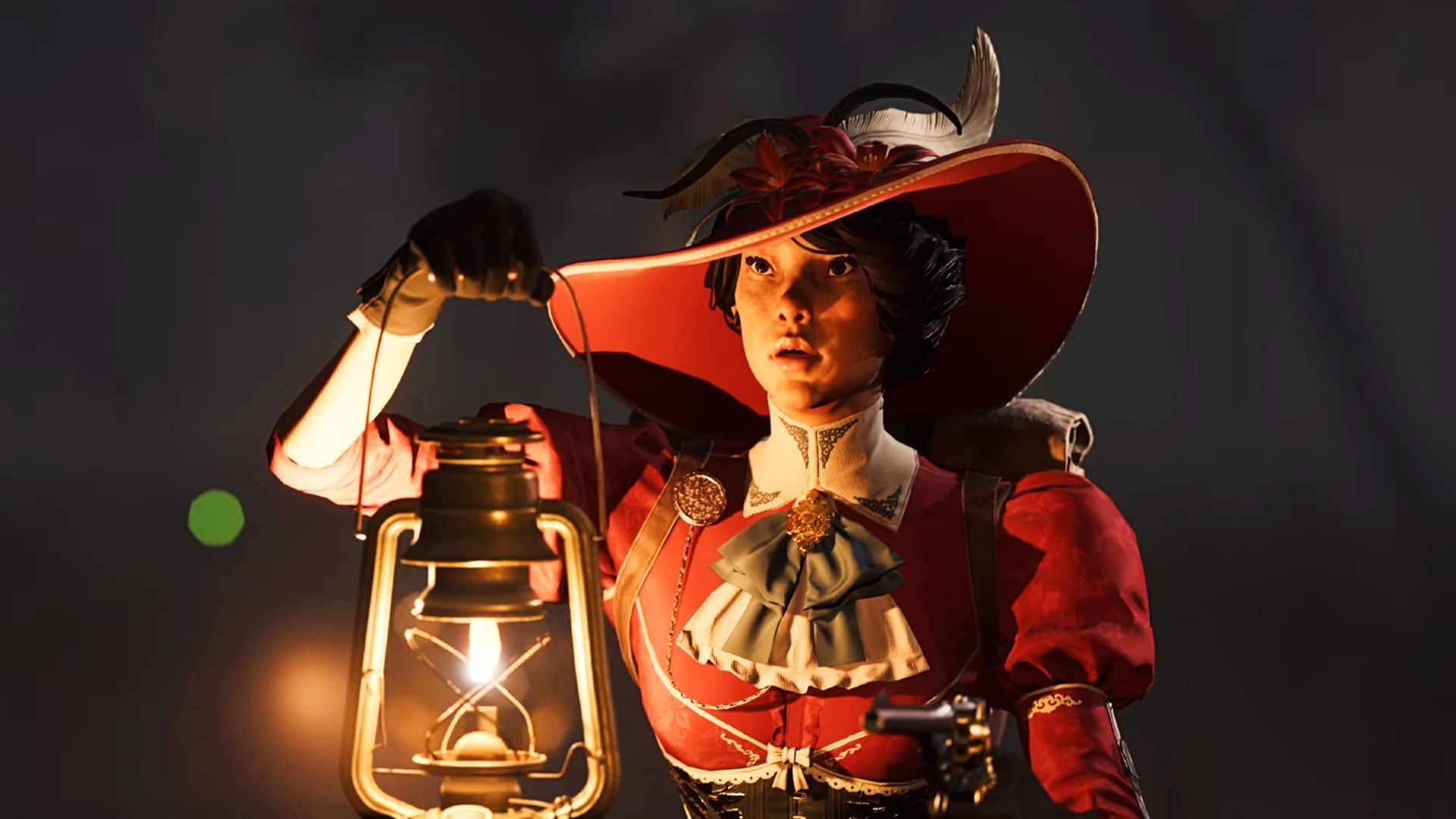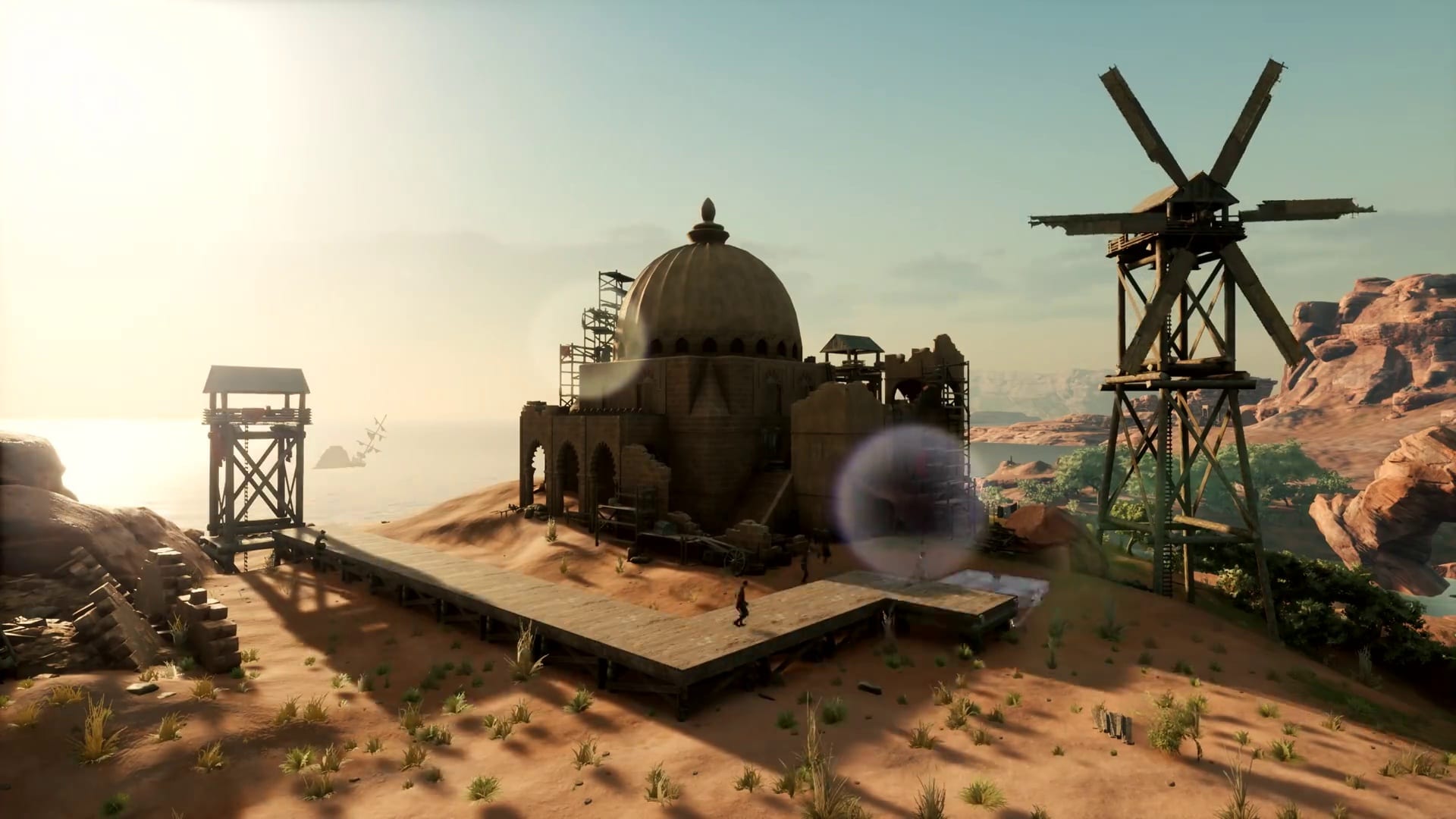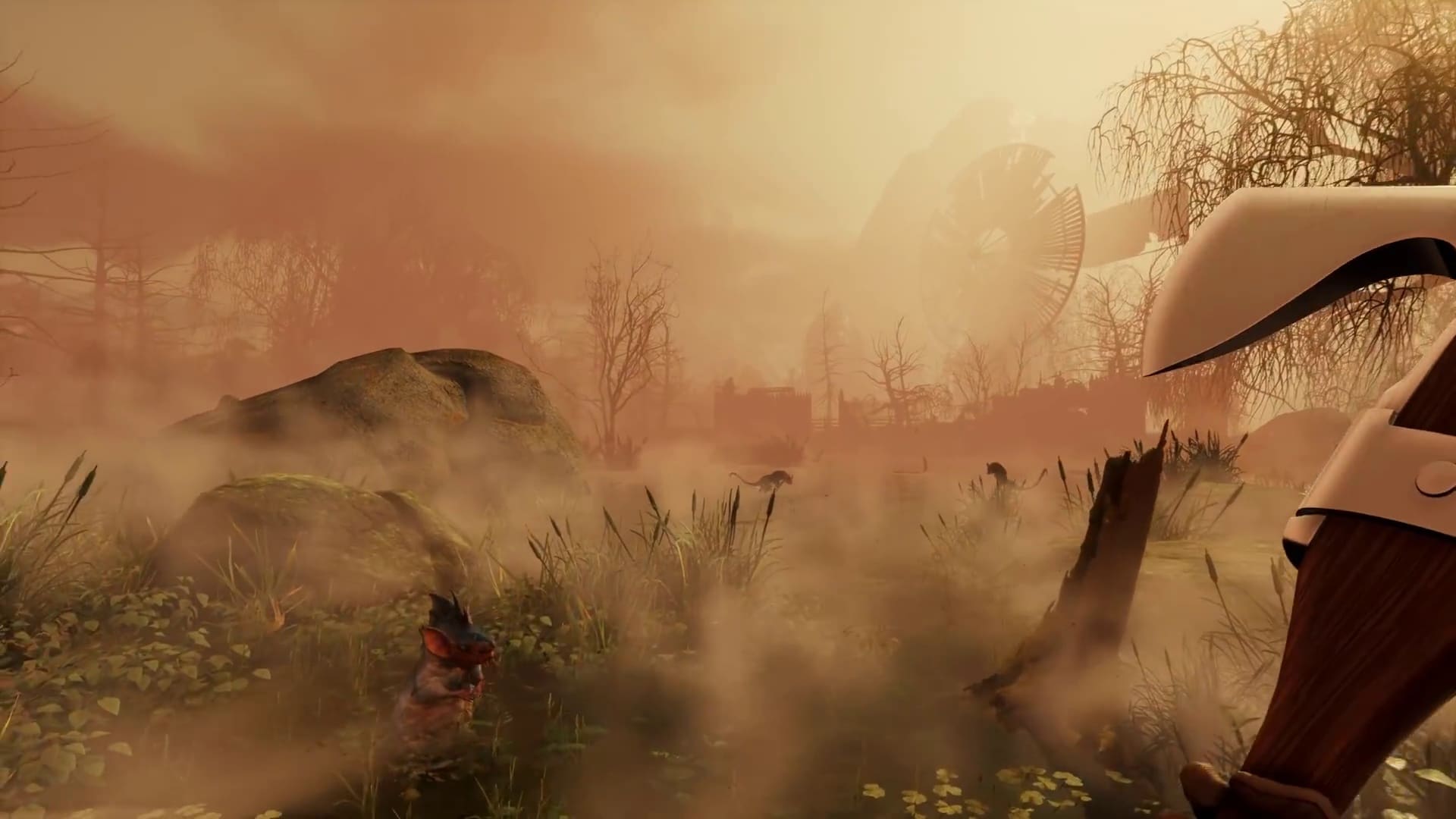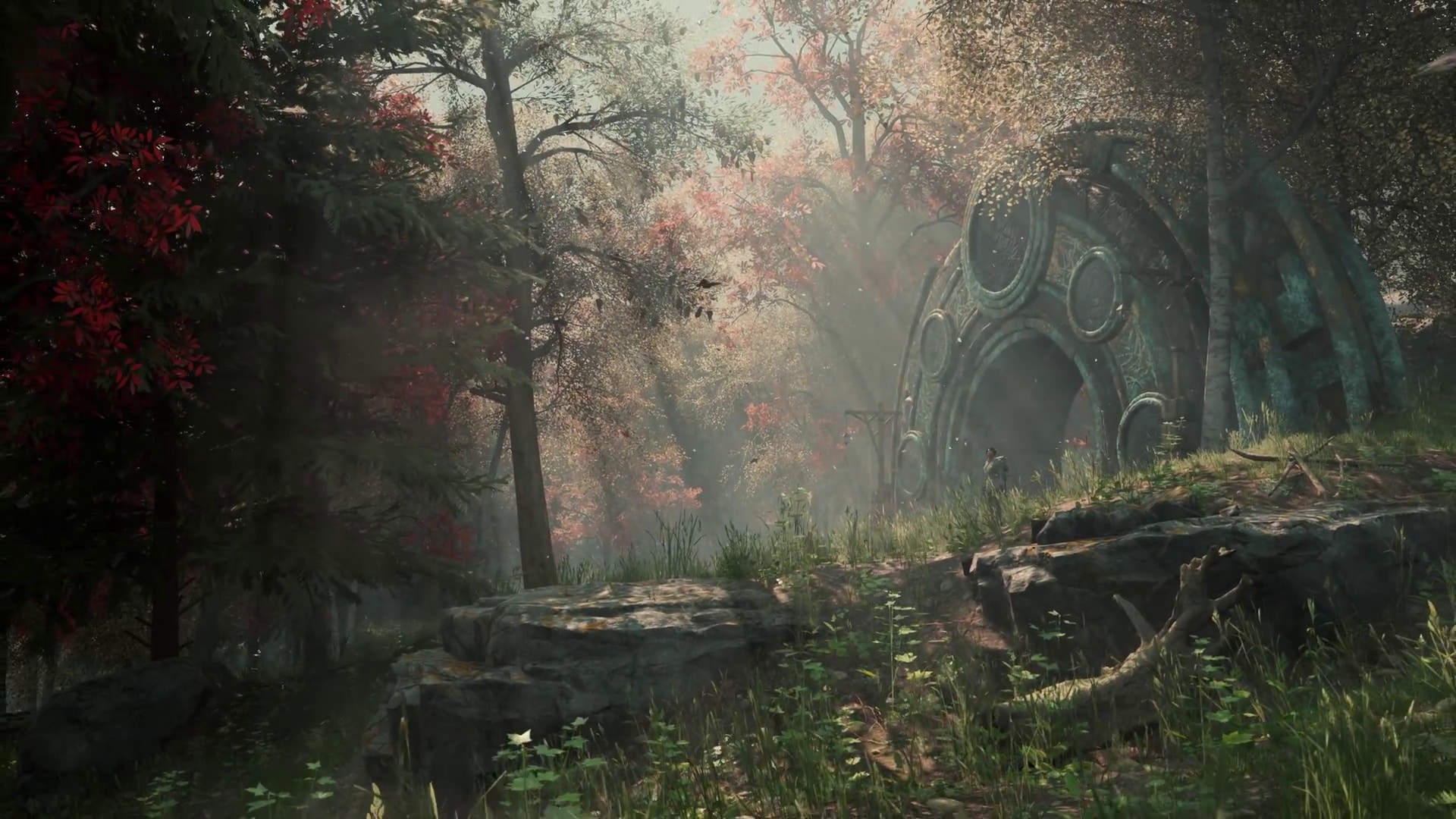Following in the footsteps of Valheim, Nightingale is a survival MMO that combines strong graphics and the aesthetics of New World. But there is more behind it.
In recent years, the legendary role-playing game studio Bioware has lost numerous development veterans. Some of them, like founding member Ray Muzyka, have turned to other industries altogether, others are venturing a new start with their own studios.
Aaryn Flynn, who worked on Baldur’s Gate 2, Knights of the Old Republic and Dragon Age: Origins from 2000 onwards, was one of them. In 2017, he left Bioware, but now Flynn is back. At the helm of his own development studio Inflexion Games. And you have to hand it to him – he knows how to make an impression!
The Reveal Trailer for the first game Nightingale shows a remarkable look. Those who experienced a disappointment with New World in 2021 will perhaps especially jump at the similar style, figures and their clothing (big hats, fancy old-fashioned fabrics) reminiscent of the colonial charm of the bug-plagued MMORPG. Above all, Nightingale features monsters that range from overwhelmingly large to bloodcurdlingly sinister. Winged raptors that lure victims with fake human faces are something we didn’t really need in nightmares. But well, here they are now.
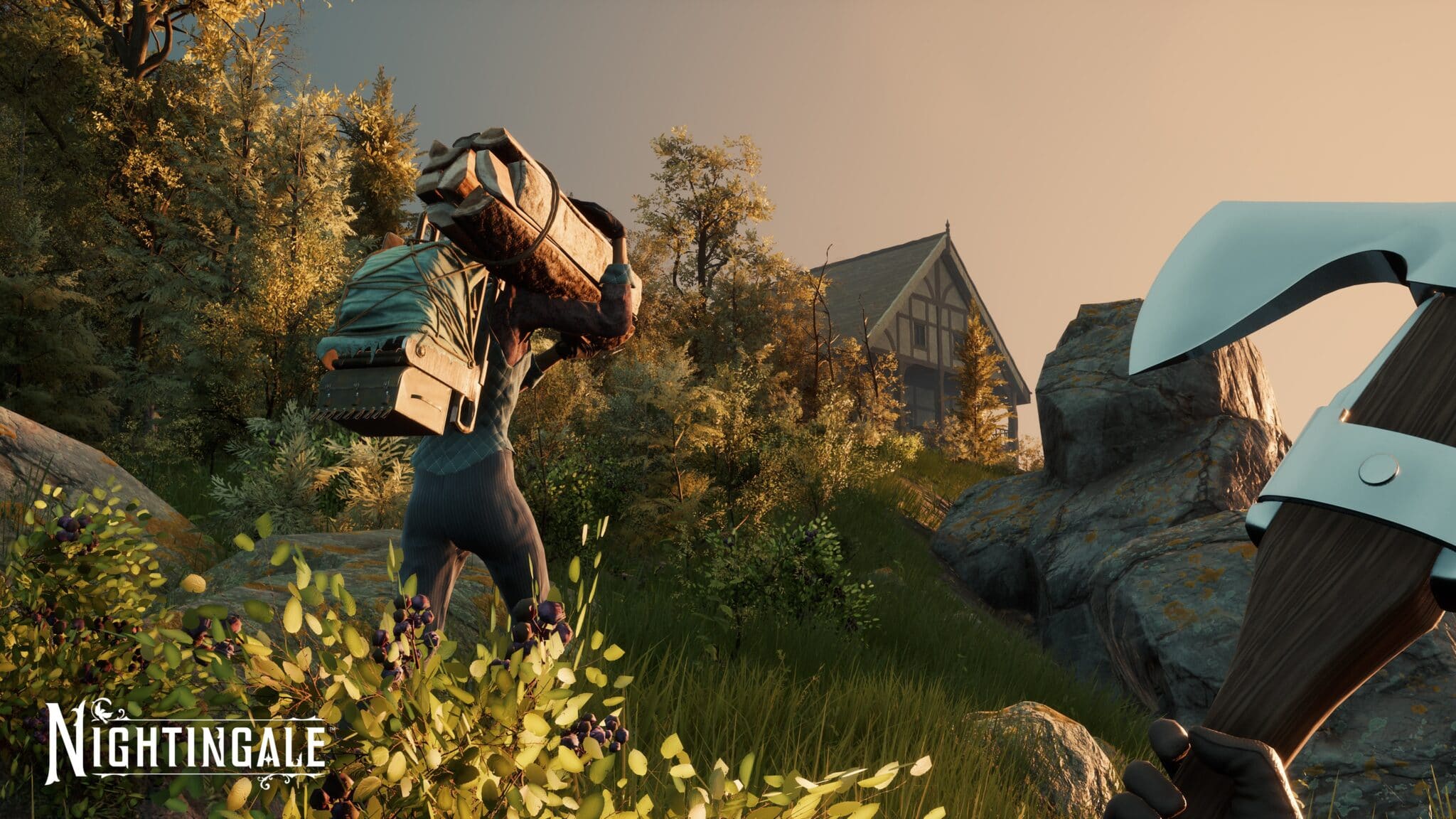
This will keep us busy for a while, but you might be wondering whether Nightingale will be a role-playing game full of old Bioware virtues or whether the team will go completely new ways. That’s exactly what we asked Flynn exclusively about and found out that besides New World, there’s another hit game that comes to mind: Valheim.
Why ex-Bioware people are now making their own Valheim
Aaryn Flynn is not the only employee at Inflexion Games with a Bioware past. The studio comprises about 100 developers, many of whom used to work at the role-playing game forge. Even if you’ve never heard of Inflexion Games before, you shouldn’t be too hasty in putting the indie stamp on the studio.
100 employees is anything but small (for comparison, Bioware had about 320 developers working in 2019). And you can definitely see that in Nightingale’s trailer, which is visually a few fingerbreadths behind the productions of major publishers. At most, the faces of the human characters still look as if they’ve had one plastic surgery too many. But the landscapes, monsters, animations and effects are impressive. The (financial) resources for this come from the British technology company Improbable, for which Flynn has been running a branch in Canada since leaving Bioware. The Chinese publisher Tencent is also involved in the project.
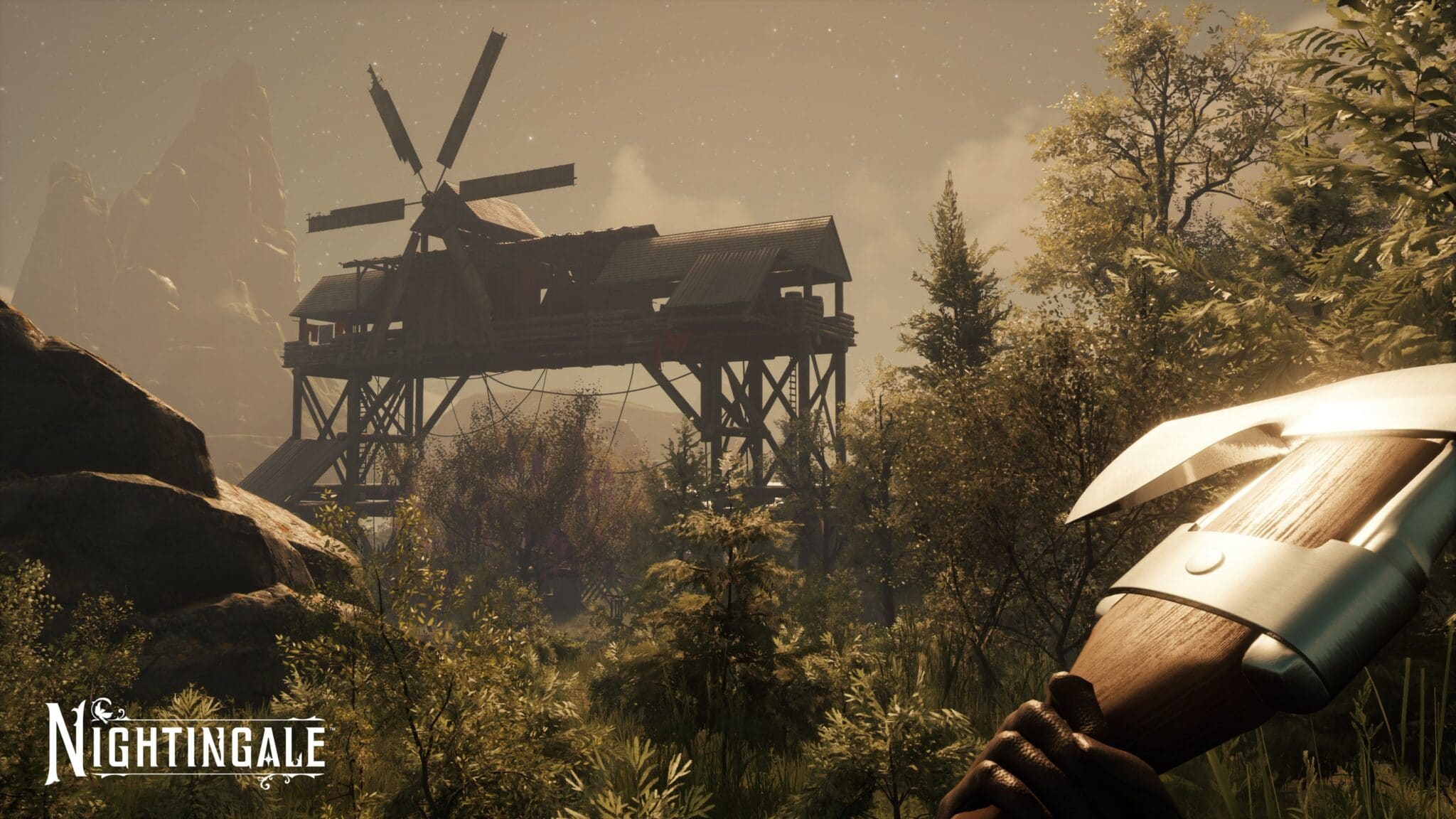
But if you’re thinking mischievously, “Ah, Flynn left Bioware just before Anthem. I’m sure he wasn’t in the mood for this Shared World stuff.” Unfortunately, we have to pull the rug from under their feet. Flynn’s whole studio is based on the vision of building games for a community. Multiplayer is at the beginning and end of every project here, and so it is in Nightingale, which can best be described as a kind of 19th century Valheim.
“Yes, the focus is more on multiplayer than single player. We start by looking at the community. We want our players to be part of a community. Obviously each one of them is a unique person and we want to respect that. But we start by looking at the central community of all our players. What can our players do together? Why should they care about belonging to a community that loves this game or wants to be part of this world?”
A big step away from what Bioware was actually once famous for. And according to Flynn, a deliberate move. They simply wanted to try something different. But that doesn’t mean completely forgetting old values. The second support for the model behind Inflexion Games is supposed to be the will to think up new, interesting worlds. This is where the experience gained from the time at Bioware comes in.
“We really wanted to have a world and a universe that was interesting, engaging and that rewarded curiosity. All of our work over the last three years has been tied to that, to ensure that the world is engaging and interesting. Fascinating, challenging and sometimes scary. […] That worldbuilding has been a very big value that we’ve learned at Bioware and we’ve learned at other studios.”
With such a big focus on the world, it’s no surprise that this same world is also the focus in Nightingale. Or rather, worlds.
Table of Contents
The highlight of Nightingale should be its Open Worlds
If the trailer for Nightingale has managed to do anything, it is to arouse interest in its surroundings. We are constantly jumping from one environment to the next here. Primeval forests full of dino-like monsters alternate with vast deserts apparently teeming with humanoid mutants that suddenly bring Mad Max to mind. In between, you’ll see swamps, meadows and an electrifying big city.
How Nightingale accommodates all these regions in his game also becomes clear. Because obviously magical portals exist in this world, which by their design alone trigger romantic feelings in Stargate fans.
Only these portals apparently do not lead to other planets, but to other regions of the world (called realms). It even seems as if this is an alternative version of Earth, because according to Flynn, Nightingale is set in 1889. This is most evident in the characters’ clothing and the architecture of some of the buildings. But unlike in reality, Nightingale had contact with fey creatures centuries ago. Freischnauze translates as fairy creatures.
They taught magic to the people there and a network of portals was created, which largely collapsed after a break with the Fey. So a lot of people are cut off. Especially from Nightingale, which is also the name of the largest city. Our task as Realmwalkers will be to restore this network and find a way back to the metropolis, which doesn’t look so inviting in the trailer though.
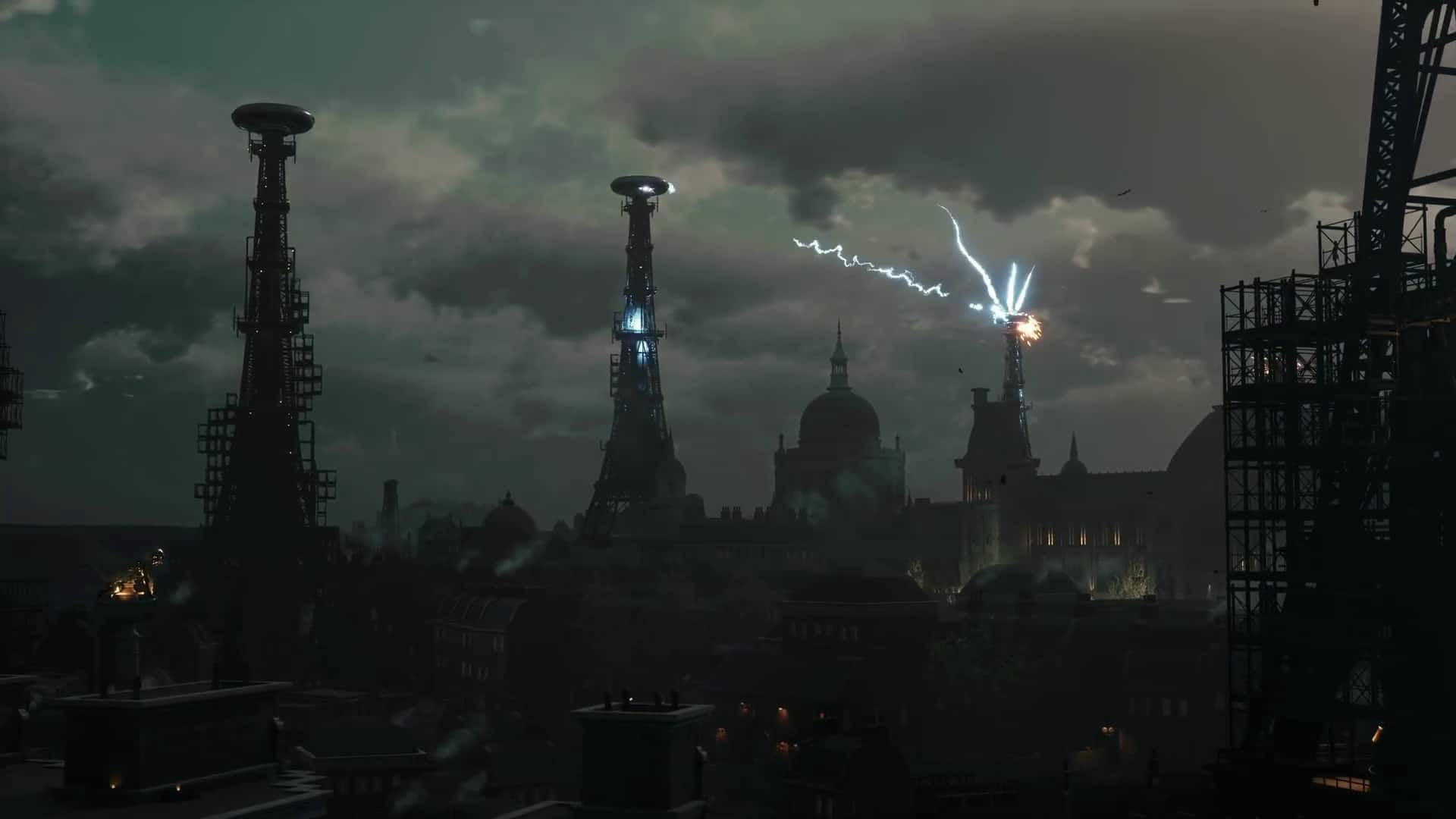
Nightingale, then, has not one Open World, but many. Each with a different biome, matching creatures and its own challenges. How big each world will be and the exact number remains Flynn’s secret. In the interview, however, he spoke somewhat nebulously of “endless adventures”. With this variety of different open worlds, Nightingale wants to set itself apart from other survival games. Even if “infinite” sounds like marketing nonsense, the game world remains at least theoretically expandable.
In general, the open areas should invite us to explore them on our own, meet players from other realms and then see how we can help each other. More Minecraft sandbox than Uncharted story tube. But you’re not completely on your own.
What to expect from the story?
First and foremost, in Nightingale we write our own stories and don’t have to stick to a set path. This already starts at the beginning, because according to Flynn, after character generation we choose for ourselves in which realm our journey begins. So we are not led from one realm to the next via an exciting plot. Instead, we jump on by ourselves as soon as we find or activate a portal.
The longer we occupy ourselves with a realm, search it and uncover mysteries, the more challenging it should become – and correspondingly more rewarding. However, Flynn is still conspicuously reticent with concrete examples. The same goes for explanations about NPCs and quests.
But both have a place in Nightingale, so we can interact with characters in the world who then give us tasks. It should even be possible to make decisions. However, we do not currently expect complex stories to unfold. Because again, Flynn emphasises that much more exciting storylines open up through the cooperation of the playerbase.
“What we should really emphasise is the community stories that then emerge. That the community comes together, creates their own stories and talks about them. […] For example, in the trailer there are the scenes with the giant that the players make an offer to pacify and maybe get a reward. That’s a decision made by those players. Later in the trailer you see what can happen if you don’t make him an offer. The giant then goes on the rampage, destroying their community. […] That’s an example of two different stories, from different groups, because of their choices.”
Such rather small decisions have soft consequences and thus no real lasting impact on the world – except, of course, that your settlement may be levelled to the ground. According to Flynn, however, there should be more memorable consequences in the game.
This raises many more questions. Will our choices be visible to everyone else? How much can the world in general be influenced by individual players? Answers to these questions will probably only be available in the coming months.
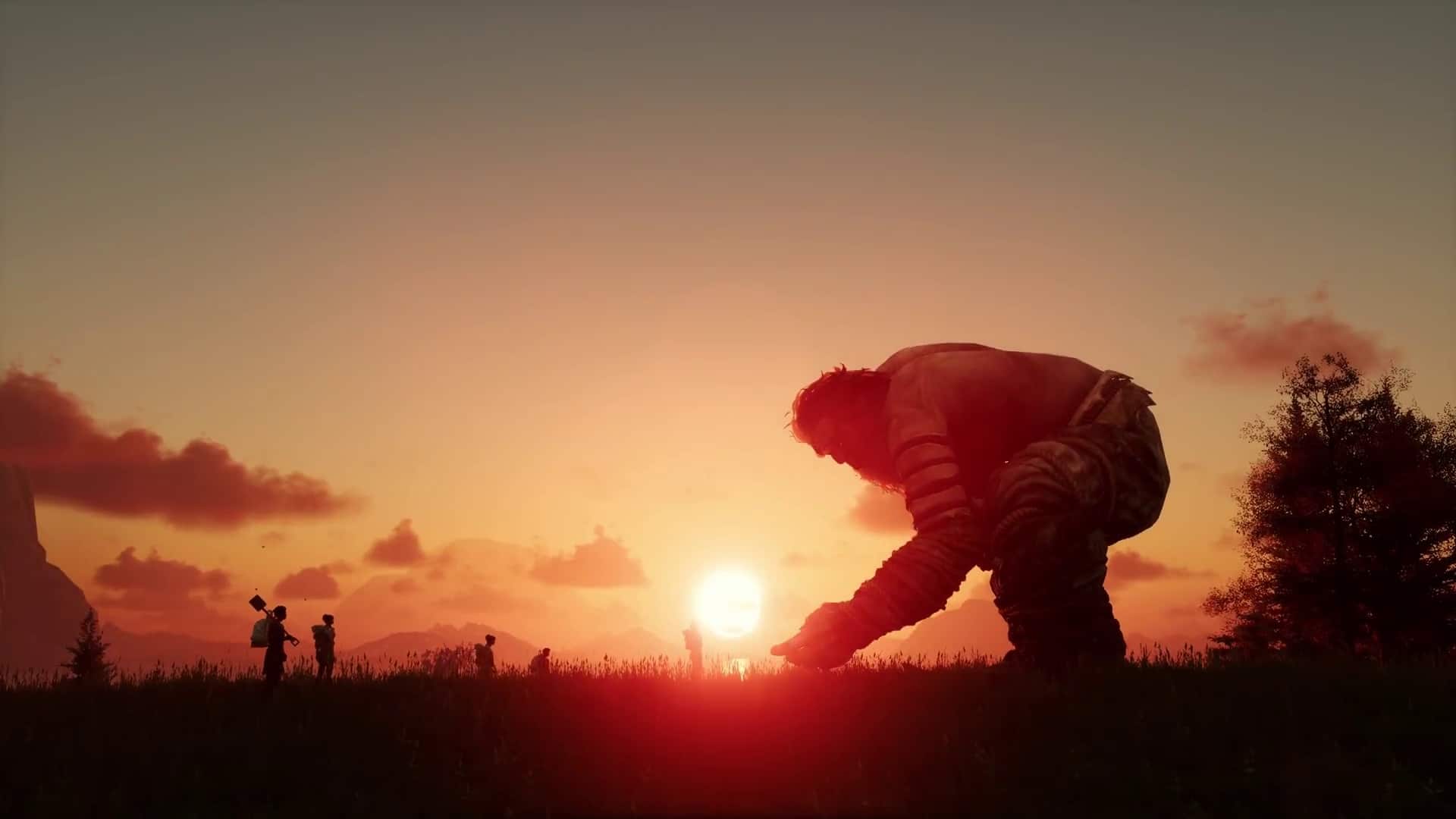
For soloists only an option on paper
You can tell Nightingale is very, very serious about multiplayer. According to Flynn, it’s supposed to be a good experience for single players as well, but that’s not the impression it’s given us so far. Yes, it is possible to do without the shared world. Those who prefer solitude can, according to Flynn, also play in such a way that no people happen to pass by. Then it’s just us, the NPCs and a world full of monsters.
But with all the focus on multiplayer, we’d be very surprised if soloists can exploit Nightingale as it’s intended – then multiplayer would be a bit of a gimmick. For example, in the interview we also spoke to Flynn about the huge monsters and whether such enemies could be mastered alone at all. He didn’t want to categorically rule that out, but thought it was unlikely.
“I mean, never say never. Players always manage to do these incredible things in games that developers never thought were possible. So the chance is there, but it’s still unlikely.”
If you prefer to stay away from games where other people are cavorting, Nightingale probably wouldn’t be the best choice. But at least there aren’t supposed to be worlds where realmwalkers gather in droves. Nightingale is more about a more intimate group experience, according to Flynn.
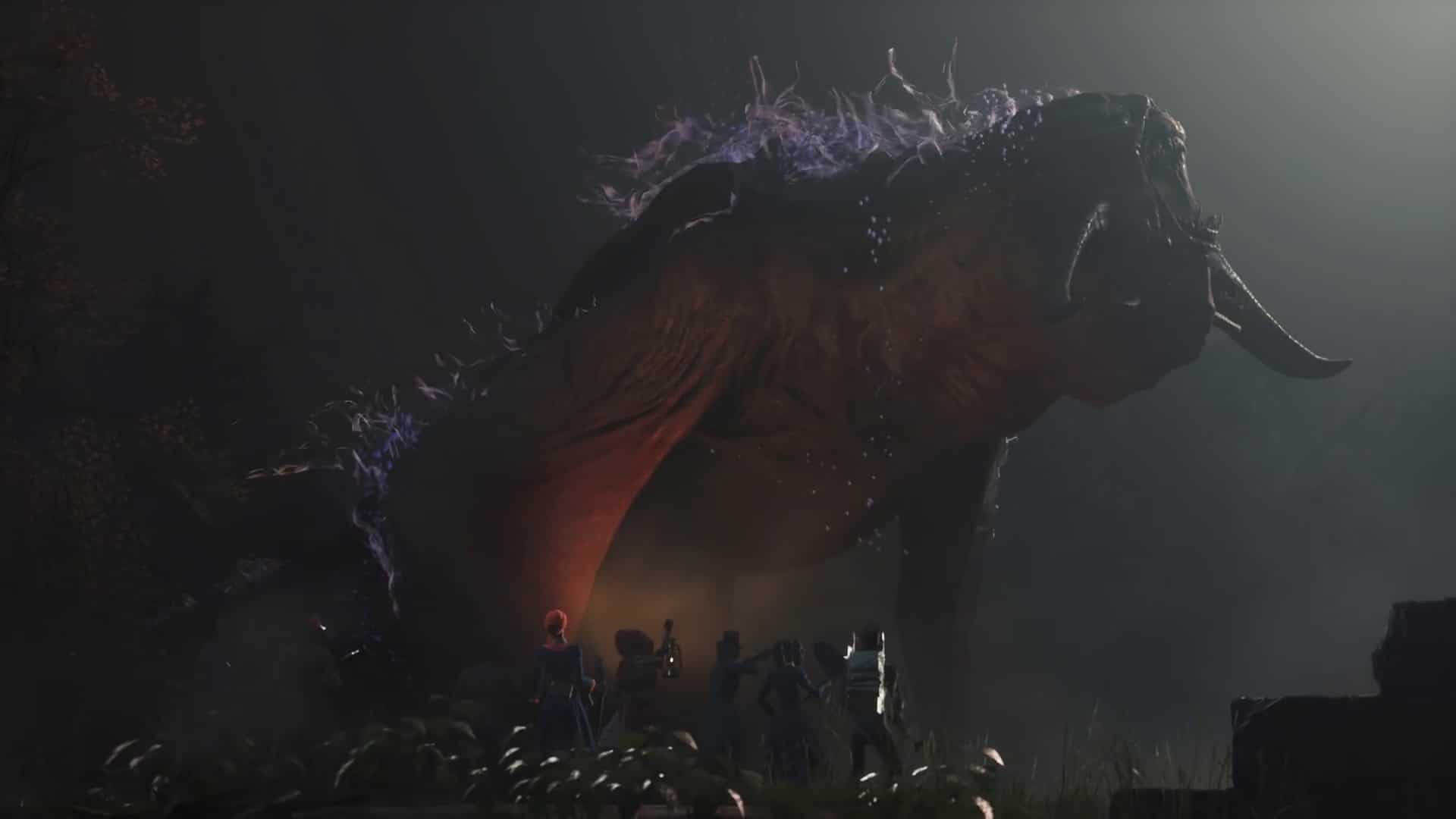
The exact number of players that will fit into a world has not yet been clarified. But there certainly won’t be hundreds. You should get a good feeling for who these other players are.
The gameplay remains vague
Normally, the details about the actual gameplay would naturally come first in a preview…. However, Nightingale remains very vague here of all things. The trailer at the Game Awards didn’t reveal much and Flynn cleverly dodged questions about concrete game mechanics or contented himself with terse answers. Well, terse hints are still better than nothing.
Survival:
Even though Nightingale belongs to the survival genre at its core, it won’t be a frustratingly knock-down experience. It’s not about surviving as long as you can before losing everything again. According to Flynn, the whole underpinning is not meant to gag or annoy, but simply to offer a certain challenge. The world applies gentle pressure for you to be careful and prepare accordingly, but is never meant to become a burden.
How deep the struggle for survival goes remains completely open. Flynn speaks of many familiar mechanics, but he only mentions the network of portals as a unique selling point. So eating will probably be important. Will drinking be as well? Who knows. After all, in Valheim you can do without water completely.
Crafting:
Nightingale does not dare to experiment with crafting either. It is to be oriented towards known representatives, moreover a little more towards the systems in role-playing games instead of just survival competitors. The trailer already showed how a sleek revolver was forged. This at least speaks for the possibility of adding a little more small-scale adornment.
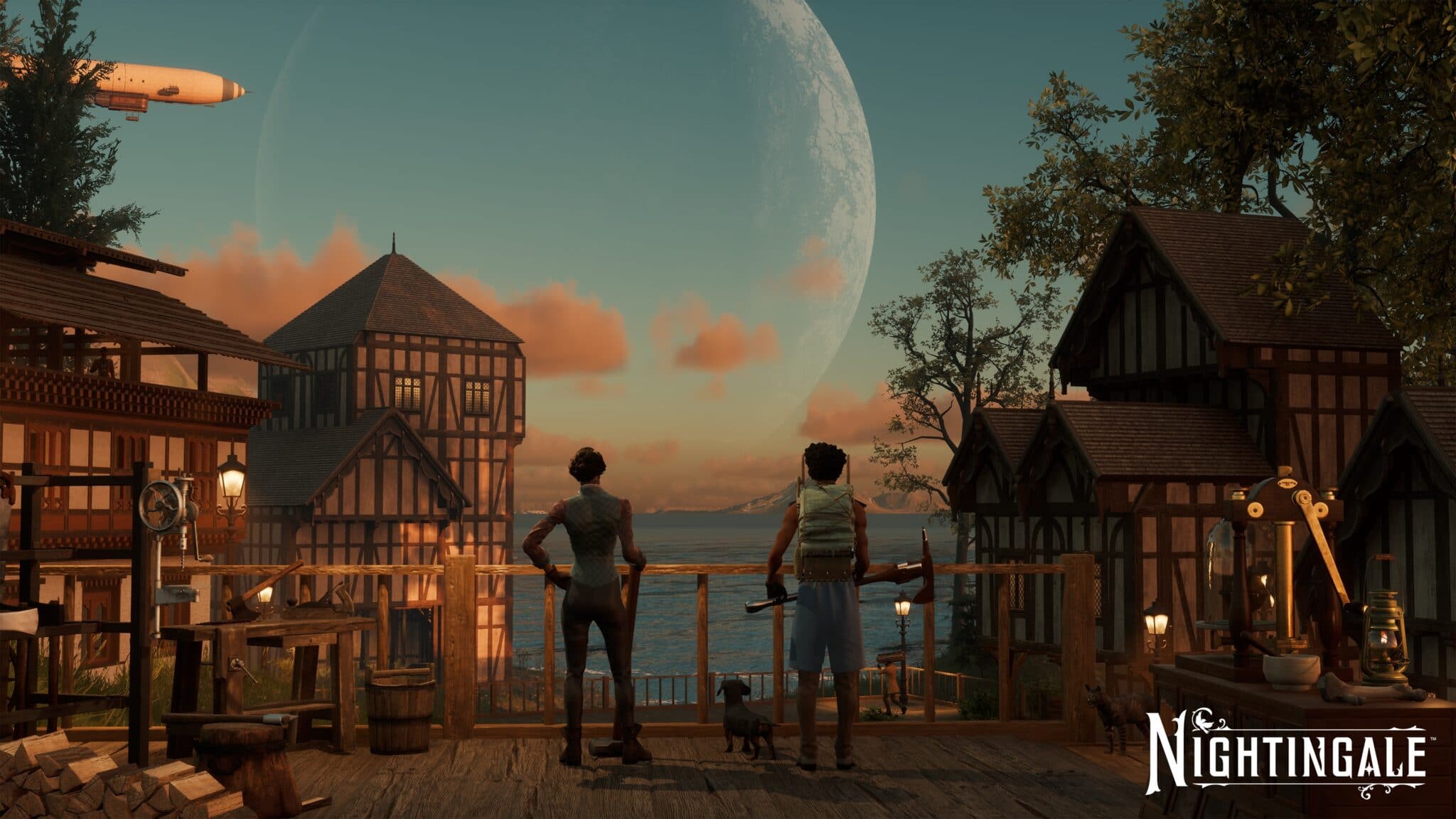
But blueprints are needed for certain items or even buildings, of which experienced players should have considerably more than beginners. The construction of houses or entire settlements also lets us combine set pieces such as walls, windows or doors. This has also been seen in other games such as Fallout 4 or Valheim.
Roleplaying game:
In Nightingale we have a lot of control over the development of our own realmwalker. Right at the beginning you set the appearance, but don’t limit yourself to one class. As the game progresses, you progress and become better. However, it is primarily your equipment that determines where you excel and in which areas you weaken a little.
Progress is therefore very much linked to the crafting system. For example, rare materials should enable better weapons or pieces of equipment.
Battles:
But once again, a look at the trailer reveals more about the combat system. You fight from the first-person perspective. You use ranged and melee weapons. It is action-based. The only detail that the trailer doesn’t reveal is that there will also be a magic system, which Inflexion Games is still working on.
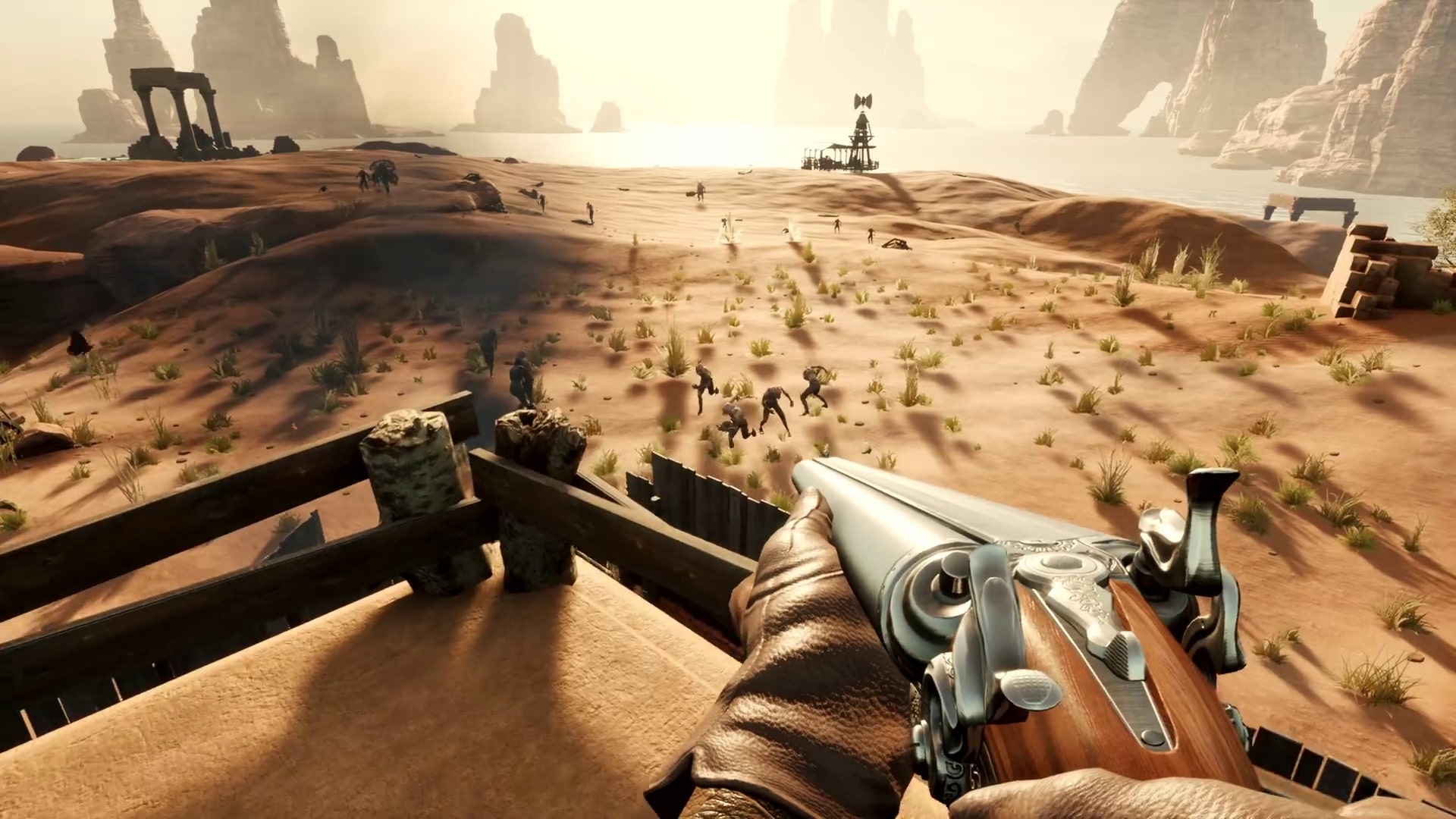
This allows for additional enchantment of weapons later on. The result is specific buffs or even unique abilities. Flynn hopes this will make combat more strategic than is usually the case in the survival genre. Sounds a lot like certain enemies will require tuned effects. Maybe one of those nasty human raptors is susceptible to fire damage.
So far, this information only gives us a rough idea of what Nightingale has to offer in terms of gameplay. It does sound quite genre-typical, but at least the portal concept with several survival worlds is unique in itself. And maybe it will feel a bit fresher with the stronger role-playing focus and at least some NPCs. We still have a few months to think hard about it, because it will be a long time before Nightingale is released. Early Access is scheduled to start in 2022.

